Understanding ODD with ADHD: Why Defiance Isn’t the Whole Story and What Helps | Ryan Wexelblatt, LCSW, ADHD Dude

If your child seems defiant, argues constantly, or melts down when told “no,” you might have heard the term Oppositional Defiant Disorder (ODD). I want to challenge that.
I’ve worked with hundreds of kids who meet the criteria. My son, adopted from the foster care system, could have been the poster child for ODD when he first came home. But the truth is, ODD isn’t what most people think it is, and labeling it that way can make things harder for your child and your family.
If you’ve been told your child has ODD, chances are you’ve felt blamed, or like your child is being labeled as a “bad kid.” You might be exhausted from walking on eggshells or scared about their future if things don’t change.
ADHD and ODD: Not Two Diagnoses, One Profile
Let’s get clear on something. ADHD is a neurodevelopmental disorder, just like autism. That means it’s based on brain development and typically passed down genetically. It also means that core life skills—like managing emotions, staying organized, or adapting to changes; develop more slowly in kids with ADHD.
One of the most overlooked of these skills is cognitive flexibility. That’s the ability to adapt, to go with the flow, to hear “no” and not lose it. And when a child’s cognitive flexibility is lagging, you’ll often see it show up as:
- Inflexibility
- Argumentativeness
- Emotional overreactions
- Opposition to being told what to do
Sound familiar? That’s not defiance. That’s a child with lagging executive function skills; the real root of what gets labeled as ODD.
Why ODD Isn’t the Answer and What Is
The traditional mental health field has largely missed this connection. ODD is often diagnosed based on external behaviors—without considering why those behaviors happen.
In my view, ODD is not a meaningful diagnosis. It’s a label for behaviors we haven’t explained well.
Here’s what’s usually underneath:
- Lagging cognitive flexibility (a foundational executive function skill)
- Anxiety, which is extremely common in kids with ADHD
- Developmental trauma or early childhood experiences that lead to a need for control
In my son’s case, his oppositional behavior wasn’t about defiance. It was about needing control in a world that once felt very unsafe to him.
When we treat ODD as a standalone problem, we miss the chance to address what’s going on developmentally and emotionally.
The Role of Novelty-Seeking in Oppositional Behavior
Here’s another piece most parents are never told: the ADHD brain needs novelty to stay engaged. That’s why your child might be obsessed with a new topic or hobby for a week and then suddenly drop it.
Sometimes, novelty shows up in less helpful ways—like provoking a reaction from you.
If your child argues with you and gets a big emotional response, that’s a form of stimulation to their brain. It’s not a conscious choice—they’re not trying to “push your buttons”—but it can quickly become a pattern.
So when you combine:
- Lagging flexibility, and
- A brain wired to seek stimulation,
…it makes sense that your child might seem defiant, even when that’s not what’s going on.
So… What Should You Do Instead?
When I work with parents inside the ADHD Dude Membership, one of the first mindset shifts we make is this:
Stop saying, “My child has ADHD and ODD.”
Start saying, “My child has ADHD and a tendency to be inflexible or argumentative.”
That simple shift does three things:
- It removes the stigma of a label most people don’t understand
- It focuses your thinking on the skills that need to be developed
- It keeps you grounded in reality—not fear
Most kids labeled “ODD” grow out of that behavior as they develop more flexible thinking and emotional regulation skills. The exception? When their inflexibility is accommodated instead of addressed. Accommodating inflexibility makes it worse over time.
And if your child’s oppositional behavior is rooted in anxiety or trauma, they may also need support around building felt safety and emotional control—not just behavior management.
Understanding ODD with ADHD Isn’t About Labels—It’s About Leadership
You don’t need another diagnosis to manage. You need a clear understanding of what’s driving your child’s behavior—and a path for helping them grow out of it.
If your child’s defiance, arguing, or emotional outbursts have left you feeling stuck or overwhelmed, you’re not alone—and there’s a better way to handle it.
Inside the ADHD Dude Membership, I’ll walk you through exactly how to deal with defiance and oppositional behavior while building your child’s flexibility and emotional regulation skills.











